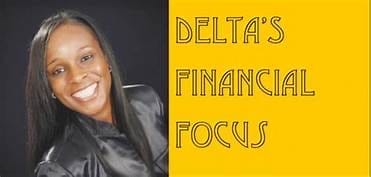A recent article in the Washington Post featured Florida lawmakers’ quest to make financial literacy a requirement for graduation. This is a curriculum addition that school districts have long been exploring across the country. As a professional who works with clients who are looking to save, build wealth, invest, etc., I agree that learning the basics of these concepts while in high school could be beneficial.
What Is Financial Literacy?
According to Ramsey Solutions, “Financial literacy classes teach students the basics of money management: budgeting, saving, debt, investing, giving and more. That knowledge lays a foundation for students to build strong money habits early on and avoid many of the mistakes that lead to lifelong money struggles.”
I can’t count the times I’ve heard the phrase, “If I had known this sooner, I would have handled the situation differently.” While this statement can be applied to most any circumstance, early knowledge about money management can be paramount. Let’s hone in on some of the benefits.
- Better budgeting – Helping students understand the concept of budgeting can help with spending habits as they enter adulthood. For example, those who are headed off to college can lean on their financial literacy teachings to help manage their funds that tend to be more limited once they arrive on campus.
- Earlier saving – Financial literacy emphasizes the importance of saving. The earlier youth learn how saving impacts lifestyle and ultimately retirement, the more likely they are to begin saving at an earlier age.
- Debt Avoidance – Financial literacy helps distinguish good debt vs. bad debt. It also teaches the consequences that excessive debt can cause. A basic course in high school can educate students on how to avoid and/or tackle debt before it gets out of hand.
- Earlier Investing – Most often, conversations about investing don’t happen until adulthood. This means young people have missed out on a considerable amount of time and opportunity to engage in the market and even build a portfolio. It doesn’t take a huge amount of money to get started. All they need is the knowledge on how to invest, which financial literacy offers.
- Charitable giving – Perhaps one of the most heartfelt attributes to financial literacy is learning how to give back while making your contributions impactful. Students can learn about tax deductions on their gifts as well as donation matching programs.
It will certainly be interesting to see how the Florida legislation on financial literacy as a graduation requirement turns out. The good news is that whether it becomes law or not, learning good money habits can start at home. Parents and guardians, start sharing smart money practices with your children now, so that they can embrace and implement them later.
Connect with Delta Jones-Walker and Atled Financial on Facebook, Twitter: @Atled_Financial and LinkedIn! To schedule a complimentary consultation or a presentation to your group or organization, call 219-513-3710 or email [email protected] and mention this column. Topic ideas for this column are welcome!
Securities and advisory services offered through Woodbury Financial Services, Inc., member FINRA/SIPC. Insurance services offered through Atled Financial Group 3801 Ridge Road, Highland, IN 46322, which is not affiliated with Woodbury Financial.






